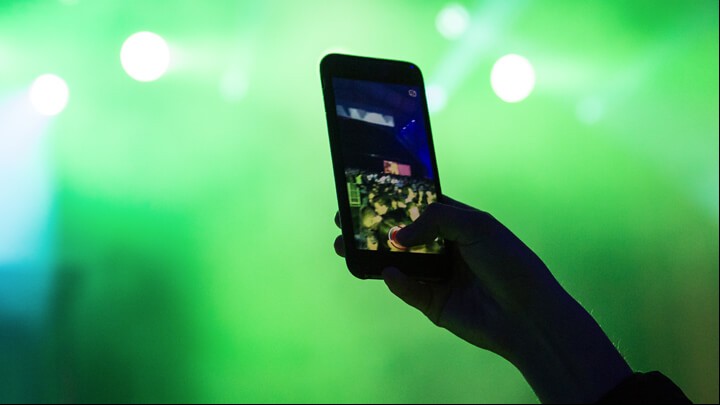Music educators and advocates everywhere are wisely taking advantage of the many opportunities to learn from and connect with each other through social media. Educational social media is not a new phenomenon, but rather something that has “newly” bloomed into an incredibly organized set of resources. Social media networks offer another way to deepen and share the impact of quality music programs on students everywhere.
Imagine a resource that is always available, 24/7, to music educators and advocates. Imagine a global community that is brimming with the best, most creative, and brightest musicians, teachers, parents, students and community leaders, all sharing information with each other. Imagine a resource that is continually updated, and a living, working database where all types of questions may be asked and pertinent answers are received in an efficient and timely manner.
These “dreams” are now the fulfilled promise and reality that social media has brought to the profession of Music Education. Targeted social media channeling provides the equivalent of non-stop professional development for music teachers and real-time information about legislation, funding and myriad local, state and Federal concerns related to providing quality music education programs. This resource is available, right now, to anyone with Internet access – and most of it is free and simple to use.
Social Media is More Than Just Socializing
Unfortunately, for many, “social media” conjures up visions of flipping through Facebook pages or listening to music on MySpace or Last.fm. Others imagine sifting through hundreds of mindless “status updates” or “tweets” about “where somebody has recently been” or “what somebody has recently bought”. Though it’s true that social media may be simply social and fun, its power has also been harnessed to promote the value of music education, to advocate for school music programs, to sustain collaborative discussions among music colleagues, and to join like-minded individuals together for student projects, course development and research. It offers an efficient means for advocates to work together to help protect and enhance quality music education programs in their school districts. By using the search function in any one of the services listed below, you’ll find people working together to prepare school board presentations and plan meetings with elected officials. You can even create your own Events and invite others to attend and help spread the word. In short, social media now provides a never-before seen firestorm of opportunities for the ongoing learning, development and collective action of music education professionals and others who believe strongly in the benefits of music education.
There has already been a large amount of “social good” created for the entire music profession by the existing online communities of music educators. Social media sites such as Facebook, Twitter, LinkedIn, YouTube, Flickr, and blog sites like WordPress and Blogger provide incredible opportunities for innovation, learning and collaboration.
A “Get-Started Now” Primer on Social Media
Getting started with a music education social network is a very easy task and most times is as simple as “reaching out” or spending a little time with a search engine such as Google or Bing.
Are you ready to take the plunge or do you want to add another option to your current online networking? Here are some action steps to get connected to music educators and music education advocates through the use of social media.
Twitter/X:
1. Create an account
2. Follow a vetted list of music educators on Twitter:http://twitter.com/pisanojm/mused
3. Set up searches for popular hashtags (keywords used to share resources that start
with a pound (#) sign):
a. #musiced (general music education discussion)
b. #mpln (Music Educators’ Professional Learning Network http://musicpln.org)
4. Join #MusEdChat - the weekly Twitter chat for music educators
a. Homepage: http://musicedmajor.net/musedchat/
b. How to get set up: http://musicedmajor.net/2010/07/26/get-started-musedchat/
Facebook:
1. Create an account at www.facebook.com
2. Use the built-in features to connect with friends and colleagues
3. Browse Facebook fan pages to find organizations/companies of interest.
LinkedIn:
1. Create an account at www.linkedin.com
2. Use the built-in features to connect with friends and colleagues
3. Fill out an “online resume,” citing previous work experience, involvements, and skill sets
a. LinkedIn will automatically make connection suggestions based upon others that have attended the same school(s) or were employed at the same companies
b. Fill out recommendations and request recommendations
c. Browse “groups” of career related interest:
NAMM: www.linkedin.com/groups?home=&gid=106240
NAfME: www.linkedin.com/groups?home=&gid=1935160
Blogging
1. Create a blog (FREE!) by visiting wordpress.com or blogger.com by following a number of simple prompts
2. Begin sharing thoughts about music, music advocacy, and music education through writing blog posts
3. Promote the posts on Twitter, Facebook, and LinkedIn by sharing them
4. Continue the conversation by allowing commentary on the posts and discussing them
RSS/Aggregation
1. Create (or log in to) an account at www.google.com
2. Navigate to www.reader.google.com
3. Any time an ORANGE RSS ICON is found on a Website it may be “subscribed to” and read in the Google Reader at a later date (including all future posts from the Website as they happen)
4. Google Reader can be used as a music, music education, and music advocacy news hub - add RSS feeds from any websites for instantaneous updates
Many music educators and advocates are uncertain about how to start using social media technologies, but simply choosing to ignore or dismiss them means losing out on the opportunities that they present. Like anything else in life, getting started is all about taking the first step. By following these action steps, anyone can use social media to help support music education – are you in the loop yet?
-- Dr. Joseph Pisano (@pisanojm) – named the TI:ME 2011 Mike Kovins Teacher of the Year – and Andy Zweibel (@zweibz7) are easily found online and have been pioneering new ways to use and integrate music education with social media for years. Follow them online via Twitter (http://twitter.com/pisanojm and http://twitter.com/zweibz7) or find out more about them by visiting their Websites: http://jpisano.com and http://andyzweibel.com.

